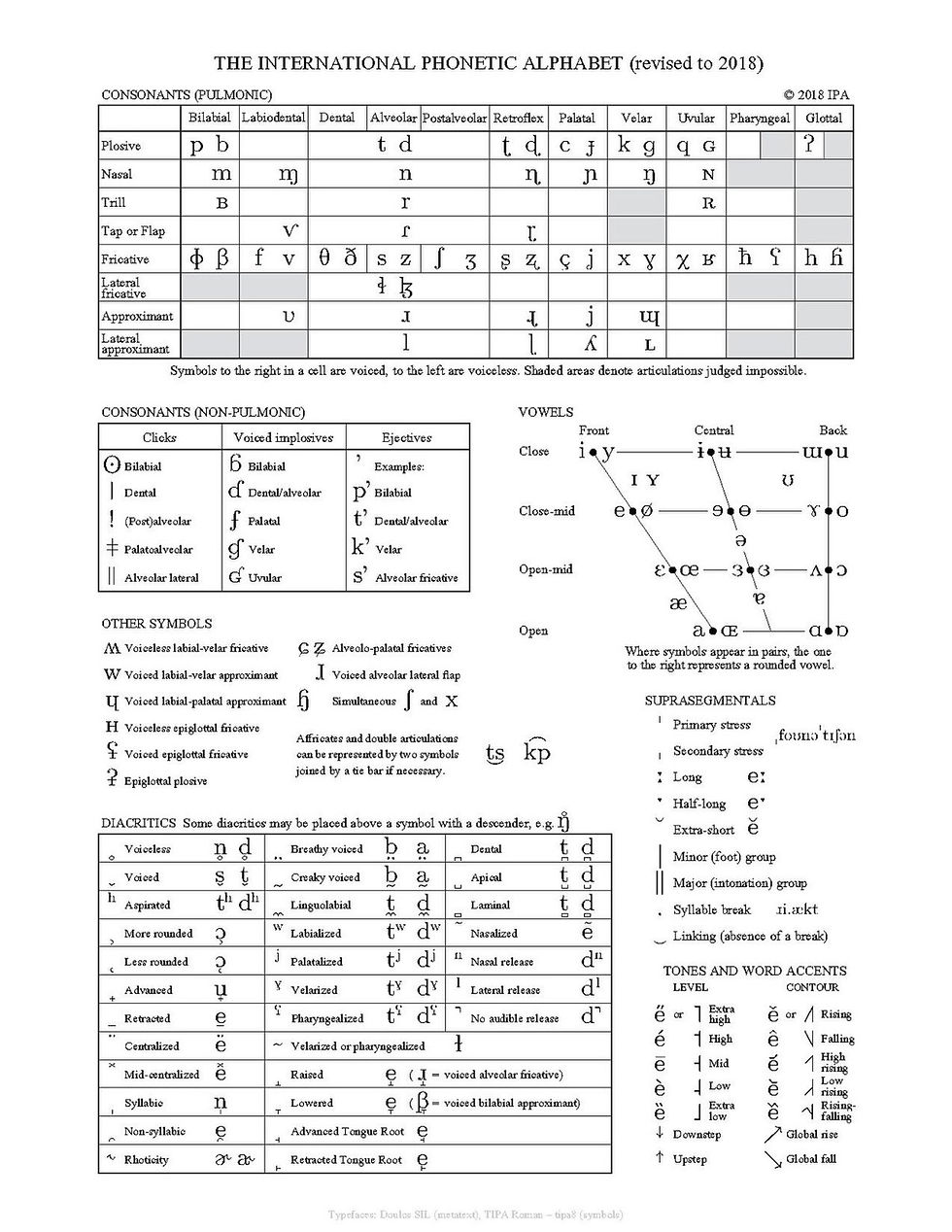International Phonetic Alphabet and Mechanical Linguistics
- Iosua Ioane Fānene

- Sep 21, 2019
- 2 min read

I’ve worked from a generally consistent drift pattern for consonants as I cross-reference languages to search for deeper meaning and parallel meanings across multiple languages. Sometimes definitions of words propagate through a language family or dialect and either gain or delete original meanings the further from the root language a dialect is. In this manner local lexicons become fragmentary or richly laden with deeper meaning. For instance, ULI—It means “black”, “blue”, “dark”, “behind”, “past” depending on where in the Pacific you are. It is likely related to OLI, and TOLI which relate to “trees” and metaphorically to the recitation of “ancestral histories”, these being aspects of the past as with ULI, events dimmed by time. I would venture it even shared a common root with Greek ἱστορία / ĪSTORIA itself a composite containing ορί / ORI meaning “horizon”, the place beyond which all of human history and our ancestors dwell, also known as Pō, or “Night”.
Referencing the attached chart you may observe the nearly linear adaptations of languages as a model for migration as described in the text that follows.
Unvoiced alveolar Fricative to unvoiced retroflex fricative:
S to Š as SĀ to ŠA (SĀMOA is oft pronounced ŠĀMOA in some regions of Sāmoa)
Unvoiced Retroflex Fricative to unvoiced pharyngeal Fricative:
Š to Ḫ as ŠA to ḪA
Unvoiced Pharyngeal Fricative to Unvoiced Glottal Fricative:
Ḫ to H as ḪA to HA (HĀMOA as in Hawaiian for “Sāmoa”)
SĀVAI’I to HAWAI’I
Unvoiced Glottal Fricative to Unvoiced Bilabial Fricative:
H to Φ
Unvoiced Bilabial Fricative to unvoiced labiodental fricative:
Φ to F
Exemplified in HA’A to FA’A (“in the manner of”), and FE’E to HE’E (“Octopus”)
Unvoiced Labiodental Fricative to Voiced Bilabial Fricative:
F to V as with AFA (Sāmoan: “a storm”/“wrathful heavens”) and AVA (अव “descend”, “down”, “to come down”)
Voiced Bilabial Fricative to Voiced Bilabial Plosive:
V to B as with VA’A (Sāmoan: “boat”) and BA(R)KA (Egyptian: “boat”); also ARK (“boat”)
Voiced Bilabial Plosive to Unvoiced Bilabial Plosive:
B to P as with BABA (Slavic for “old woman”) and PAPA (Sāmoan/Hawaiian for “primordial earth goddess”)
Unvoiced Bilabial Plosive to Unvoiced Bilabial Fricative:
P to F
Consonants seem to drift along a predictable trajectory and then come full circle.
Another route, however, is the H to Glottal Stop to K to T to D to Th to Zh to Sh to S shift.











Comments